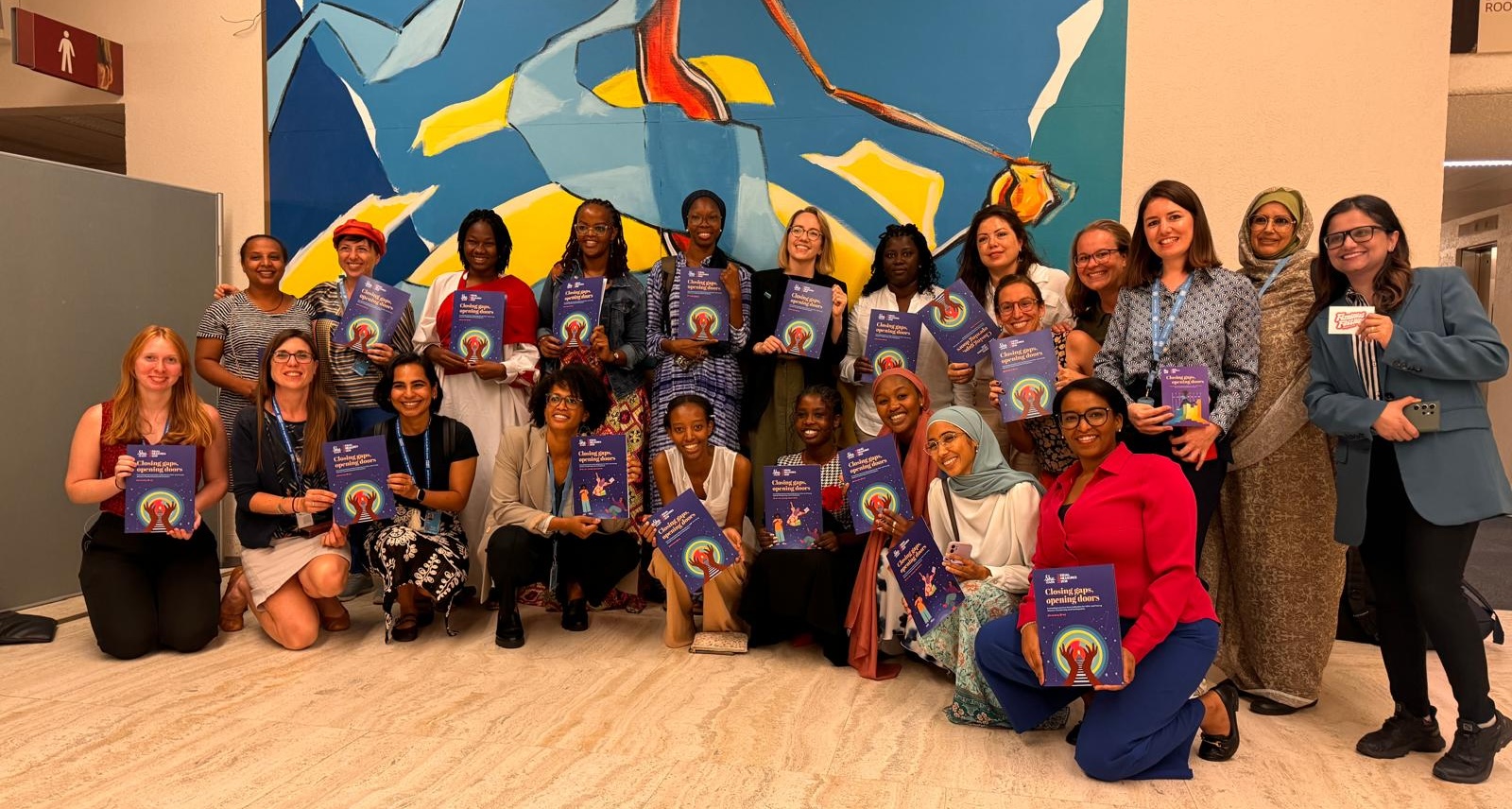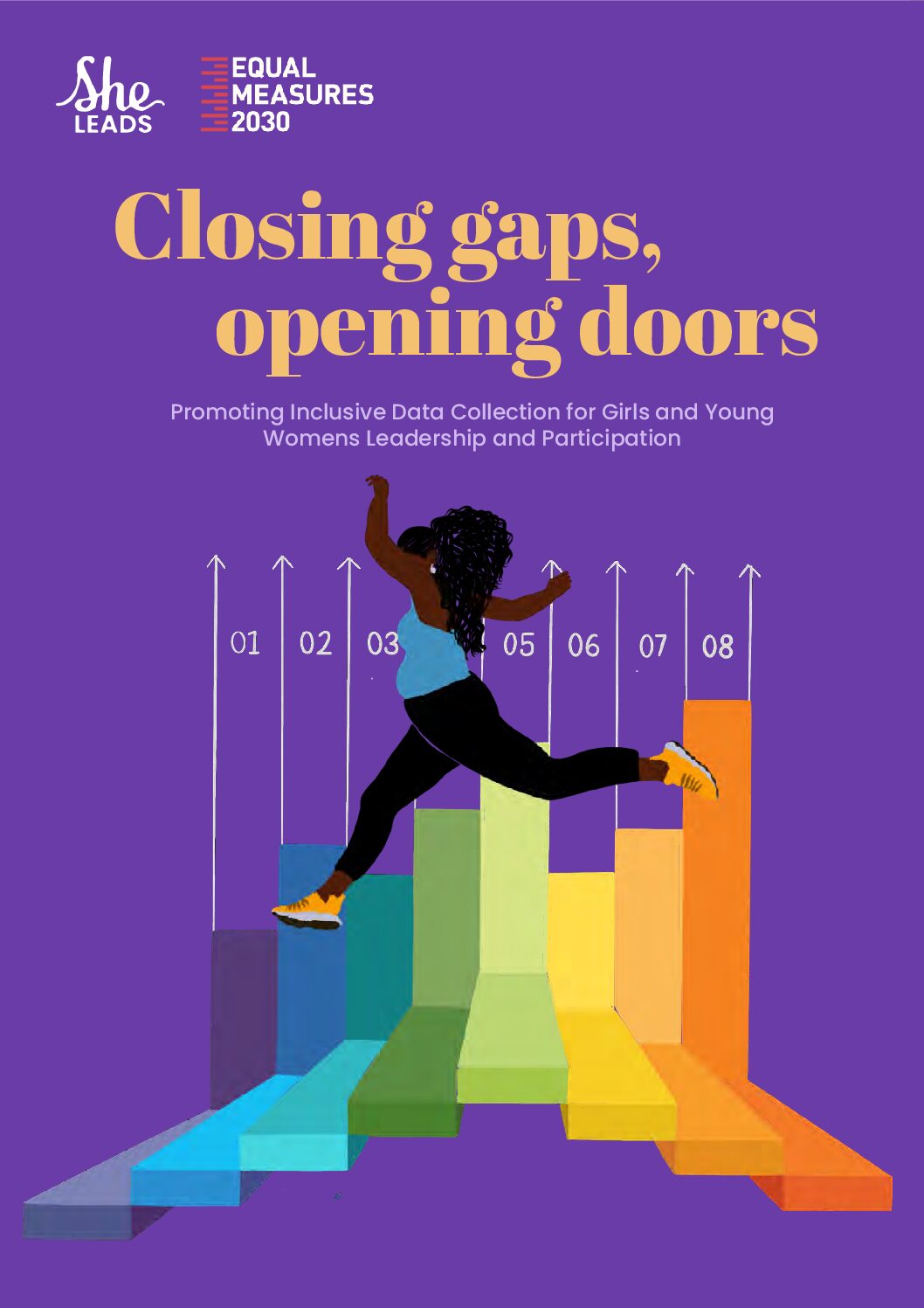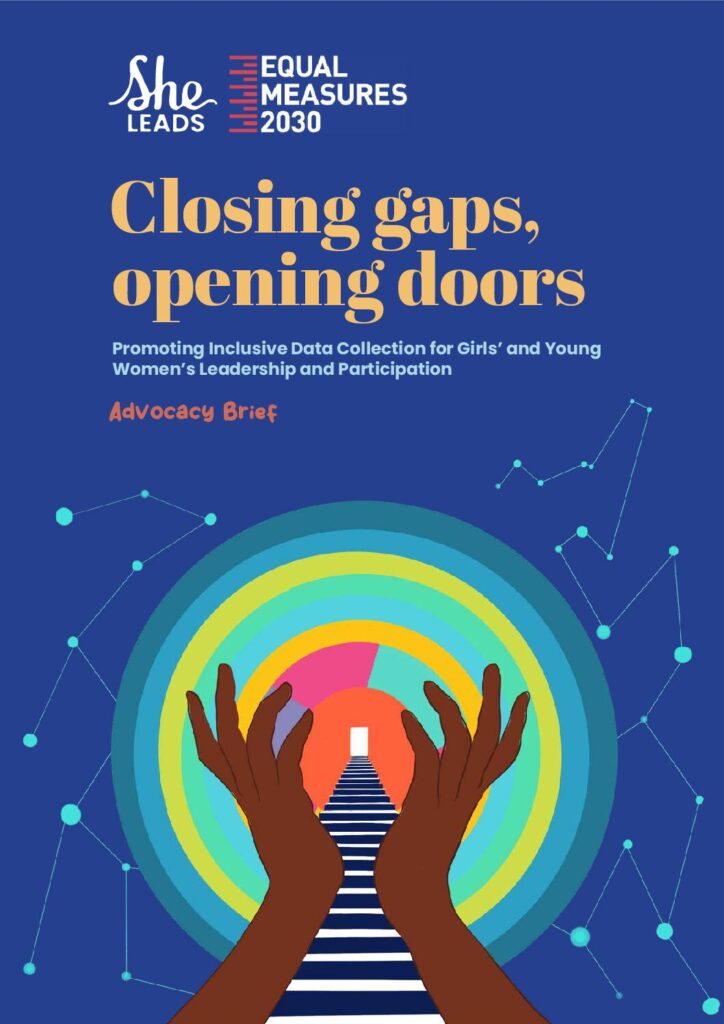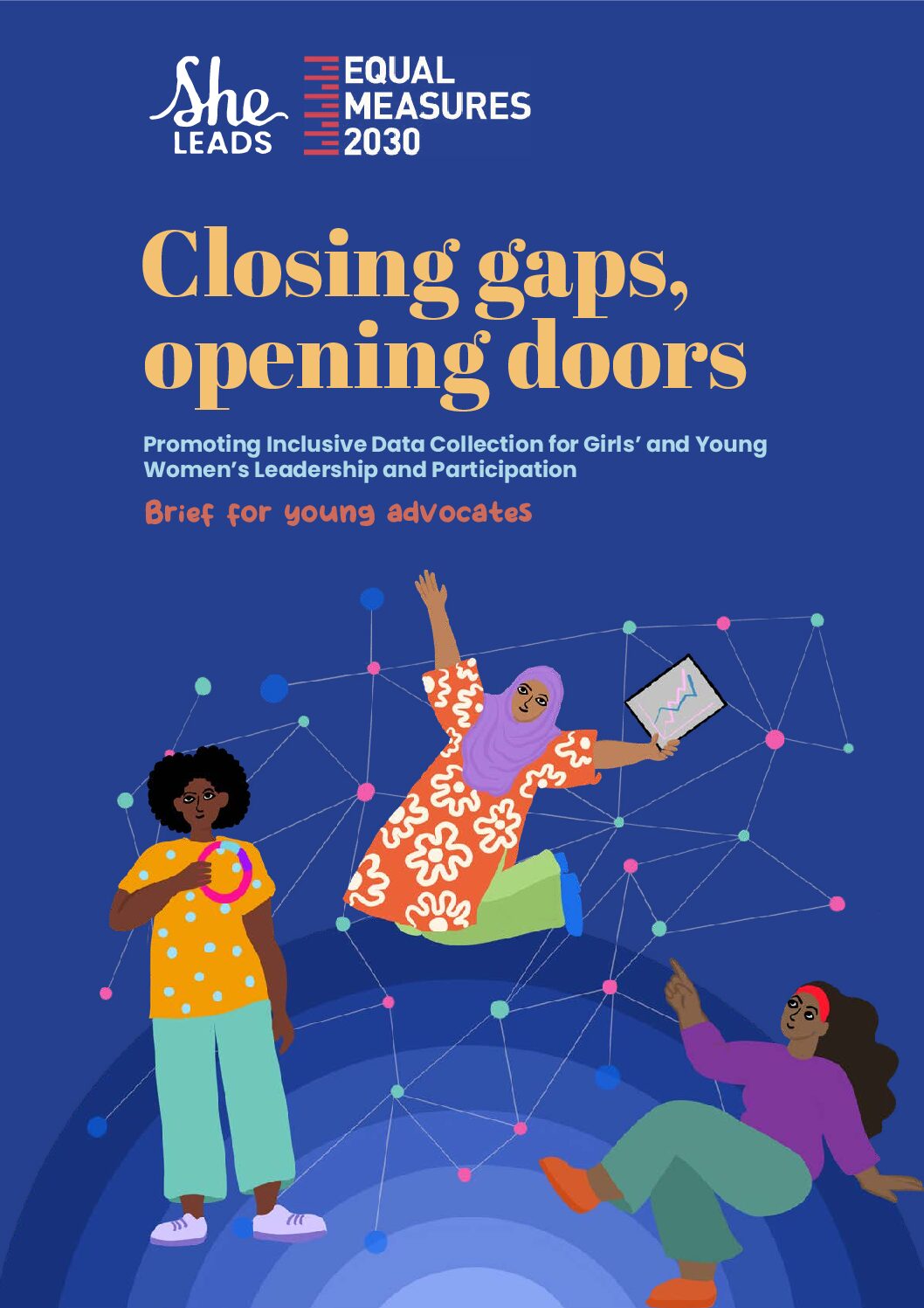She Leads – Research study

Closing Gaps, Opening Doors: Promoting Inclusive Data Collection for Girls’ and Young Women’s Leadership and Participation
Enabling girls and young women (GYW) to take on leadership roles in their communities is key to promoting gender equality. To facilitate this leadership, and to monitor whether various approaches are working, we need data and evidence. Although some limited data about women’s leadership exist, the information is rarely disaggregated by age or other identity factors, leaving GYW as a specific group who are often invisible in data. The She Leads research set out to explore the data gaps around GYW leadership. The aim was to better understand the current data landscape and to identify key barriers and opportunities to advance progress.
The study identifies a lack of conceptual clarity and a gap in perceptions among different stakeholders on the meaning of GYW leadership and participation which affect data collection efforts. It highlights several barriers that prevent data collection on GYW leadership and participation:
1. Resource and infrastructure barriers include physical infrastructure challenges in rural areas and accessibility barriers faced by GYW to freely participate in their communities due to social and physical constraints.
2. Institutional and policy barriers include insufficient public investments, along with a lack of political will around GYW leadership.
3. Societal and cultural barriers include social and cultural norms (e.g., GYW leadership being poorly understood or outright opposed in some contexts), the need to safeguard GYW (e.g., while travelling to participate) and a lack of trust in government by GYW.
The same barriers that restrict girls’ access to leadership and power also impact data collection and production. Just as social norms shape discriminatory practices so that girls are not listened to or allowed to lead, those same discriminatory practices also shape whose experience is considered worthy of being captured in data.
To advance GYW leadership and participation, we must disrupt power imbalances and bridge the data divide to empower GYW voices. This requires advocating for inclusive data collection, supporting GYW-focused organizations and demanding evidence-based policymaking. The study provides recommendations targeted at data producers, policymakers, GYW advocates and others in the GYW advocacy sector, on how to move towards GYW- and community- led data collection, that truly reflects the diverse leadership experiences of girls and young women.
Download the full report

Download the advocacy brief

Download the brief for young advocates


